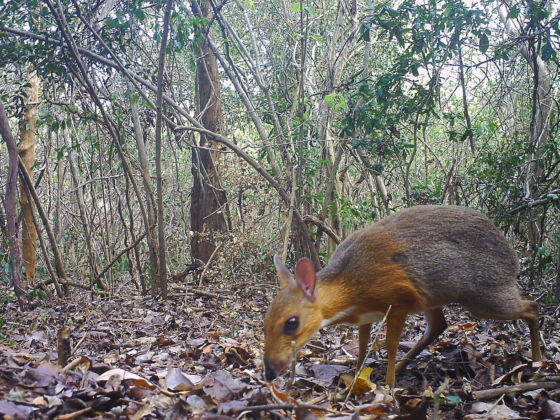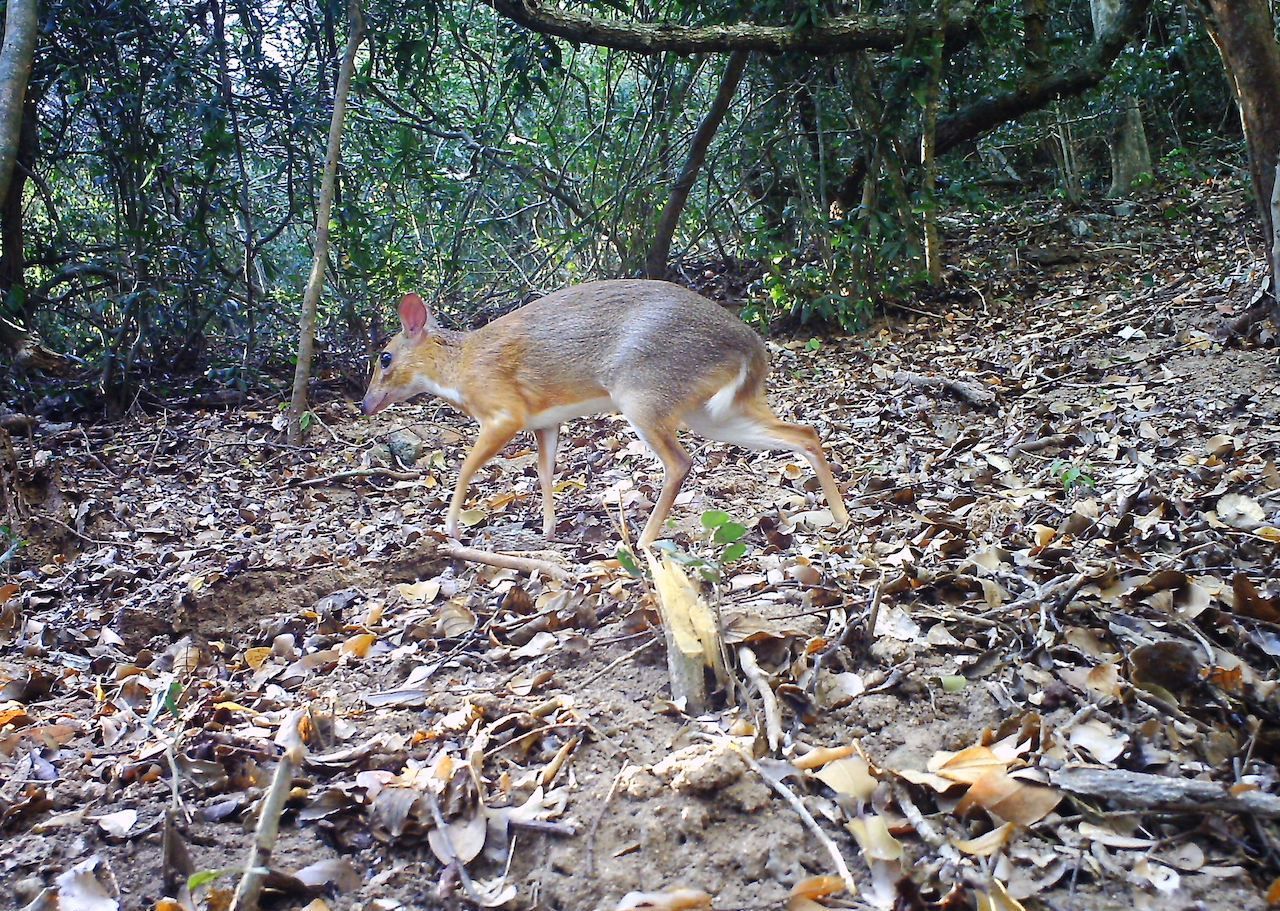It’s not a mouse, nor is it a deer, but we get it. The Vietnamese mouse-deer lost to science for the past 30 years and rediscovered recently in Vietnam does look like a combination of both adorable species — and the name is not exactly helping us get this image out of our minds.
Also known more accurately as the silver-backed chevrotain, the species was rediscovered by scientists from Global Wildlife Conservation (GWC) in the Greater Annamites Ecoregion of Vietnam. There has been no record of the species since 1990; it was believed to have been poached to extinction by wire snares.

